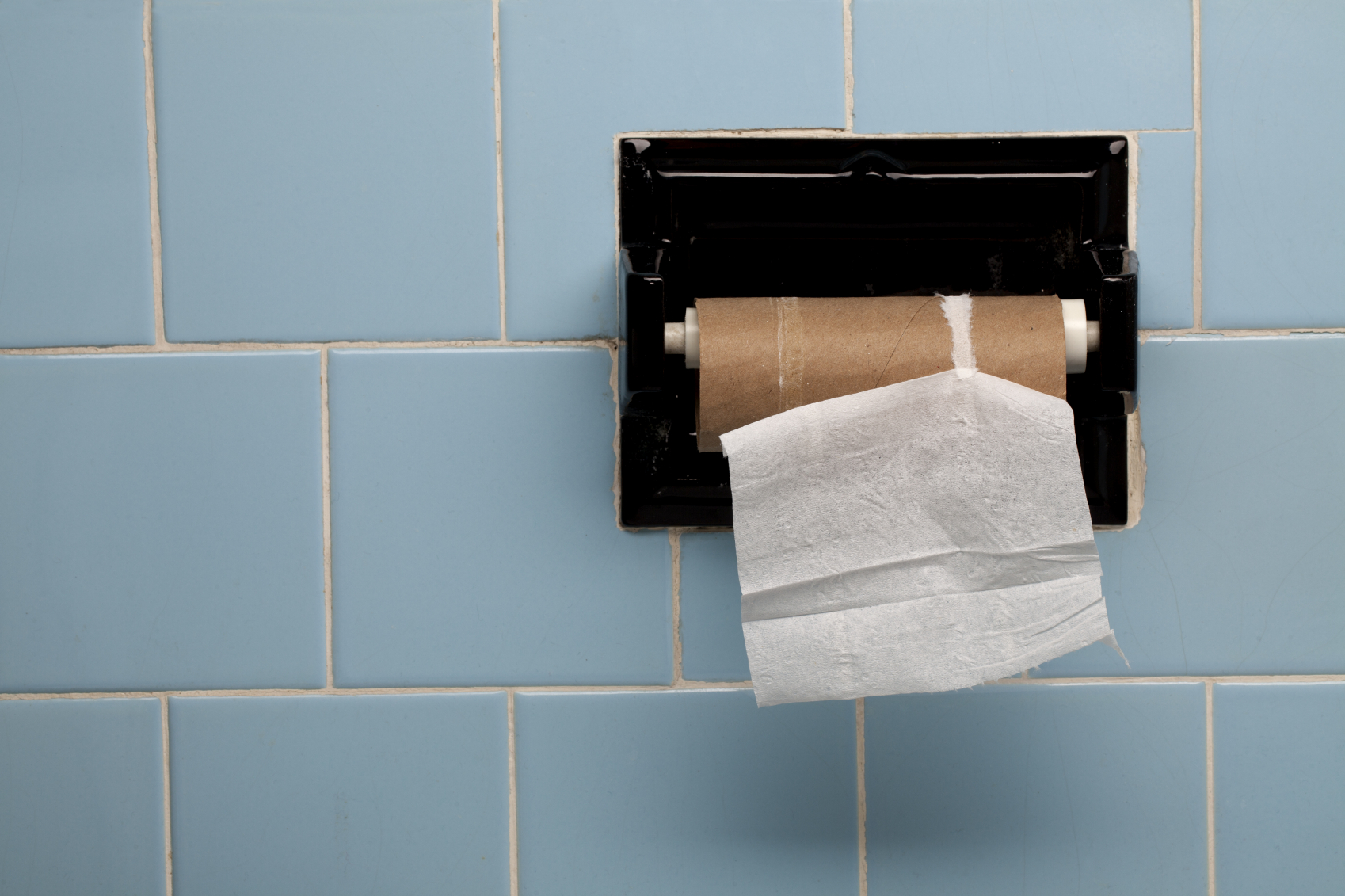AARP Hearing Center

TP or not TP, by Dick Weinman, The Thin Edge of Dignity
When I heard about it, I couldn’t believe it. But, when I saw it in black and white – actually, the font text was Arial blue – I knew the rumors were true. Coming straight from the horse’s mouth, was the statement: [ALF NAME WITHELD] “ has agreed to provide a basic supply of toilet paper, 4 rolls per week maximum, and any resident who needs more than that needs to purchase the extra rolls him/herself.” As a rule 2 rolls are provided for each room, but 2 more can be requested, one-by-one.
Not a big deal. I really shouldn’t grouse about having to purchase extra rolls. I confess, with shame, that I “squeeze the Charmin” or buy Scotts, Northern, or any brand of extra soft TP that’s on sale. But my feelings go out to those residents who have to scrape their behinds with the house supplied sandpaper. I feel their pain.
And, I think about the sufferers from IBS, the genetic inheritance of Eastern European Jewish males, and us old folks whose GI systems and colons have gone caput. Unlike the fraternity men who wastefully toss unused rolls of TP on the trees in front of sorority houses, we at [ALF NAME WITHELD] may be depression-age frugal, but we still need a free-flow of paper.
It’s not just TP that gets the short shrift in this cost cutting stratagem. All paper products fall victim to the cost-cutting strictures - nose blowing tissues join their rear-end species. (Please read the previous May 1 blog, They’re Still Gone.)
“Kleenex is the responsibility of the resident and not of [ALF NAME WITHELD.] Some residents have been asking staff to supply them with Kleenex as well as toilet paper. This will no longer continue to occur.”
As I documented in the previous blog, those of us residents who are septuagenarians, octogenarians, and nonagenarians know our noses drip excessively and frequently. That’s primarily because we’re old, so therefore afflicted with rhinitis, yet we’ve been told that “ Kleenex boxes will no longer be left on dining room tables. . (We) should put some in (our) pocket from (our) personal supply or bring a handkerchief. . .” Now there’s a germ free solution!
But, it’s not just TP and tissues that are on the verboten list; there’s another paper product eliminated from [ALF NAME WITHELD’s] responsibility to provide: paper towels.
Nurses agree that it’s unsafe if a caregiver uses the resident’s cloth towel to dry her own hands. A paper towel should be used by the caregiver. But there are no paper towel dispensers in any of the apartment bathrooms -unless the resident has bought her/his own and the maintenance man has the free time to install it.
And each room needs its paper towels supplied by the ALF. Without paper towels, how does a caregiver dry her hands after wiping a resident following a BM, or finishes showering a resident, or strips the bed of an incontinent resident, or changes the trash bucket? Paper towels in residents’ rooms and dispensers are necessary. A few years ago, the paper towels supplied to my room were taken away by the maintenance man, who said he was following new regulations. The message: buy your own.
To be a good citizen, I should be an avid consumer. I’m glad to contribute to the GNP, by increasing the profits of Kleenex, Puffs, Charmin, Bounty, Viva, and the zillions of brand names and store generic products. I’m equally glad to build up the wealth of paper manufacturers like Kimberly Clark, Georgia Pacific, Weyerhaeuser, International Paper, and the others. After all, through my mutual fund, I may be a share holder.































































